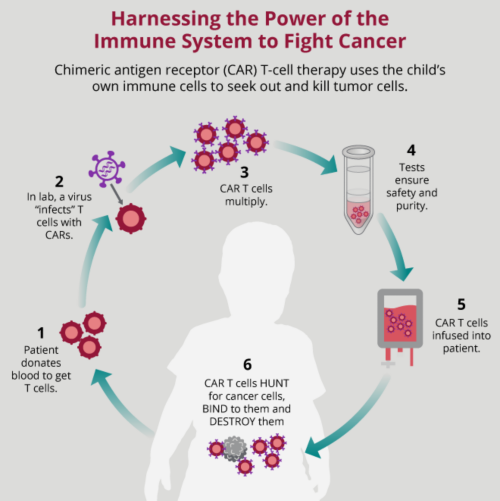Cytokine Release Syndrome (CRS)

Cytokine Release Syndrome (CRS)
Cytokine Release Syndrome (CRS) is a systemic inflammatory response that can occur following certain immunotherapies, particularly those involving CAR-T (Chimeric Antigen Receptor T-cell) therapy and other forms of cellular therapy. It is characterized by the rapid release of cytokines into the bloodstream, leading to a cascade of inflammatory responses that can result in significant clinical symptoms.
Mechanism of CRS
CRS occurs when activated immune cells, such as T-cells or macrophages, release large amounts of cytokines in response to tumor antigens or other stimuli. This overproduction can lead to:
- Systemic Inflammation: Elevated levels of pro-inflammatory cytokines, such as interleukin-6 (IL-6), IL-1, and tumor necrosis factor-alpha (TNF-α), contribute to widespread inflammation.
- End-Organ Dysfunction: The excessive inflammatory response can affect multiple organ systems, leading to symptoms ranging from mild flu-like symptoms to severe complications affecting the lungs, liver, heart, and kidneys.
Symptoms
Symptoms of CRS can vary widely in severity and may include:
- Mild Symptoms: Fever, fatigue, headache, nausea, and myalgia.
- Moderate Symptoms: Hypotension (low blood pressure), tachycardia (rapid heartbeat), and respiratory distress.
- Severe Symptoms: Severe hypotension, organ failure, coagulopathy (abnormal blood clotting), and potentially life-threatening complications.
Diagnosis
Diagnosis of CRS is primarily clinical and based on:
- Symptom Assessment: Monitoring for signs of systemic inflammation following immunotherapy.
- Laboratory Tests: Evaluation of cytokine levels, complete blood count, liver function tests, and other markers of inflammation.
Management
Management strategies for CRS include:
- Monitoring: Close observation of patients receiving therapies associated with CRS for early detection of symptoms.
- Supportive Care: Providing symptomatic relief through fluids, oxygen support, and medications as needed.
- Cytokine Inhibitors: Administration of agents such as tocilizumab (an IL-6 receptor antagonist) or corticosteroids to mitigate the inflammatory response in moderate to severe cases.
- Discontinuation of Therapy: In severe cases, it may be necessary to halt the immunotherapy until symptoms are resolved.
Conclusion
Cytokine Release Syndrome is a significant consideration in the management of patients undergoing certain immunotherapies. Understanding its mechanisms, symptoms, and management strategies is crucial for optimizing patient care and improving outcomes in those receiving CAR-T therapy and similar treatments. At DrStemCellsThailand‘s Anti-Aging and Regenerative Medicine Center of Thailand, we prioritize patient safety and monitoring protocols to effectively manage potential complications associated with innovative therapies.
For more information about our treatment options or to schedule a consultation, please visit our website or contact our team directly.
Consult with Our Team of Experts Now!
References
- Cytokine Release Syndrome: Mechanisms and Management
This article provides an overview of CRS, including its pathophysiology, clinical manifestations, and treatment strategies.
DOI: 10.1016/j.jdiacomp.2020.107646 - Management of Cytokine Release Syndrome Following CAR-T Therapy
This review discusses the incidence of CRS in patients receiving CAR-T therapy and outlines best practices for management.
DOI: 10.1016/j.stemcr.2021.05.005 - Understanding Cytokine Release Syndrome: A Comprehensive Review
This study evaluates the mechanisms underlying CRS and its impact on patient outcomes in immunotherapy settings.
DOI: 10.1016/j.biopsych.2018.03.006















